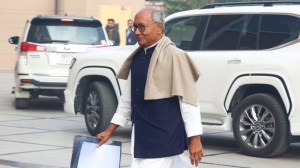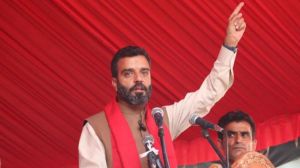Brown Sahibs
How does an alliance of English-speaking, freedom and market friendly nations sound?

India will be quite happy rolling out the red carpet to Gordon Brown, the British chancellor of exchequer and prime minister-in-waiting, who arrives on a three-day visit this week. The Indian establishment would wish Brown well in the new job he wanted so badly and is about to get. As he succeeds Prime Minister Tony Blair in a few months, the political pressure is entirely on Brown to show his commitment to a deeper relationship with India. Egged on by his fans at home to demonstrate prime ministerial mettle and booed by his detractors for lack of interest in Asia, Brown has every reason to come on strongly.
These days India has very little to complain about Britain. The memories of the disastrous visit ten years ago by the British Queen have long faded. So have the condescending homilies on Jammu and Kashmir from Blair8217;s first foreign minister, Robin Cook, and the dismissal of Britain as a 8220;third rate power8221; by then Indian prime minister, I.K. Gujral. Britain today empathises with India8217;s struggle against terrorism, is neutral on the Kashmir dispute with Pakistan, and strongly backs the Indo-US nuclear deal. Booming bilateral trade has helped reinforce the unprecedented level of mutual political comfort.
That is no reason to be complacent. As Prime Minister Manmohan Singh seeks to elevate Indo-British relations to a higher level, we recommend he embrace the idea of an 8216;Anglosphere8217;. It is about a new political partnership among the English-speaking nations that share the values of individual freedom, democracy, and free markets. Dr Singh8217;s vision of India as an 8220;open society and open economy8221; fits in nicely. So do his remarks at Oxford University in 2005 that English is one of the Indian languages. A large globalised Indian elite would also break the conventional perception that 8220;English values8221; belong only to the 8216;Anglo-Saxon8217; races. Brown can lessen British fears on losing jobs to a rising India by focusing on an all-encompassing partnership with India. He could differentiate himself from the unpopular Blair by working with India to construct an Anglosphere. Dr Singh might even find his Left comrades not so hostile to an Anglosphere. After all our Communists are part of the British legacy and the Bengali bhadralok is thoroughly anglophile. Given the potential size of our English-speaking middle class, an Anglosphere would ultimately be India8217;s to nurture. For now, though, we must let our British friends share the spotlight.
- 01
- 02
- 03
- 04
- 05































